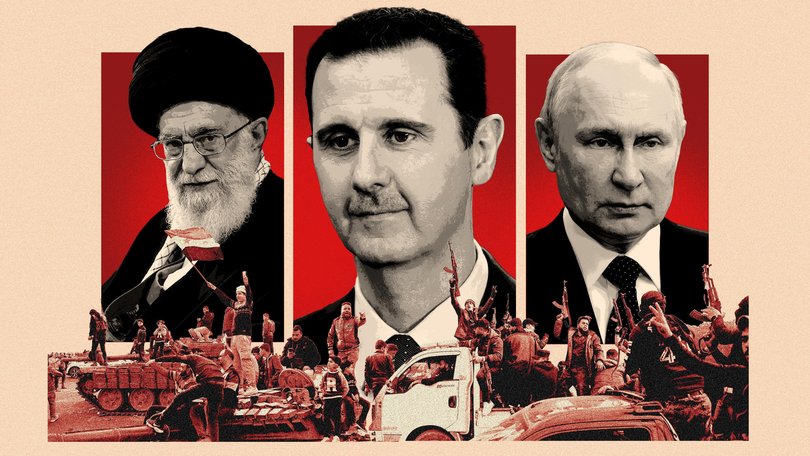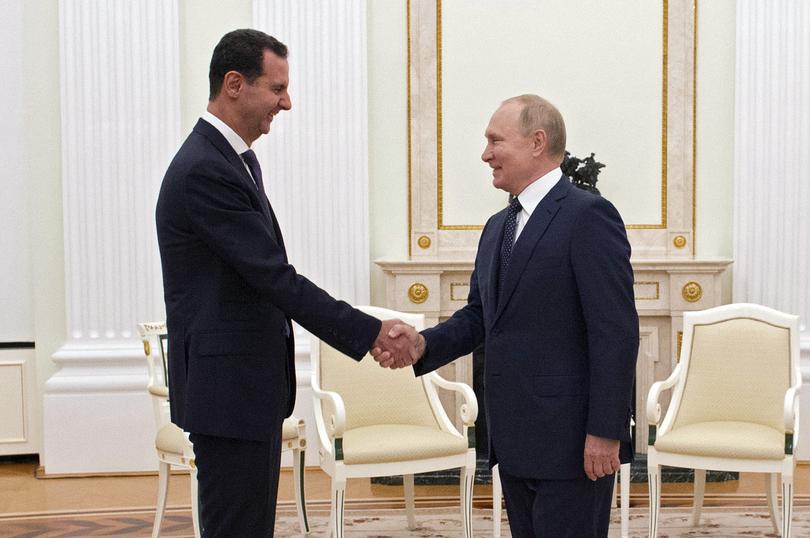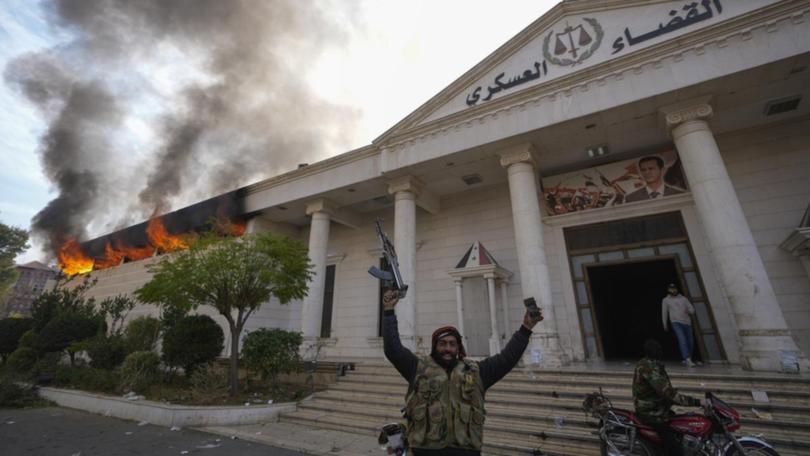LATIKA M BOURKE: Downfall of al-Assad regime in Syria shows clear geopolitical winners and losers
LATIKA M BOURKE: With Iran and Russia tending to their own conflicts, Assad’s tyrannical regime in Syria is suddenly over. While there is worldwide relief, what comes next remains an open question.

Three years ago Joe Biden’s chaotic withdrawal from Afghanistan was a bonanza for the authoritarians.
The United States was a fickle partner, sapped of resolve after years of never-ending wars and a victim of erratic democratic swings in public sentiment, the type that delivered Donald Trump and his American First mandate another endorsement, so went the narrative.
From Washington to Brussels, officials privately despaired that the unforgivable scenes of people falling from the exterior of a jumbo jet taking flight out of Kabul as they desperately tried to flee the misogynistic and oppressive Taliban, led to Putin’s decision to launch his full-scale invasion of Ukraine six months later.
Sign up to The Nightly's newsletters.
Get the first look at the digital newspaper, curated daily stories and breaking headlines delivered to your inbox.
By continuing you agree to our Terms and Privacy Policy.Then on October 7, 2023, Hamas launched its deadly raids on Southern Israel sparking a retaliation so furious from Israel’s right-wing government, that Prime Minister Benjamin Netanyahu all but isolated his country from the wider Western international community.
Hezbollah in Lebanon began firing on Israel’s northern border and the Houthis in Yemen launched Iranian-supplied missiles at commercial ships passing by in the Red Sea.
For a time, it seemed Iran’s web of proxies was succeeding in slowing down the normalisation of ties between Arab countries and Israel, stretching US resources and fraying social cohesion in Western communities as progressive and Muslim voters reacted to the scale and force of Israel’s military response.
“The world is undergoing profound changes unseen in a century, and the international situation is chaotic and intertwined,” China’s President Xi Jinping observed to Putin on a visit to Russia to attend the BRICS summit in Kazan a year after Hamas’ attacks.

The authoritarians have been thriving on the chaos of those two wars started by Putin and Iran’s proxy Hamas in Gaza.
They have exploited the West’s reluctance to arm Ukraine with what it would take to defeat Russia by developing a network of cooperation that involves China’s support for Russia’s war-time economy, including the supply of sanctioned dual-use goods that Russia can use to make weapons, Iran’s supply of drones to Russia, and most recently and shockingly, North Korea’s supply of troops to kill Ukranians.
In return, Russia is supplying all three with advanced military technology.
But this weekend shows the enormous cost those conflicts have had on Russia and Iran. Their defeat in Syria at the hands of a rebel group will reverberate around the Global South, given Russia’s attempts to fashion itself as the antidote to Western hegemony.
Iran, Hezbollah and Russia united to save the Syrian dictator Bashar al-Assad in 2015, when the West, led by former US president Barack Obama, chose not to enforce his own red line when the murderous Syrian dictator used chemical weapons against his citizens.

The revolution was quelled and for years seemed all but over.
Putin, with a naval and airbase in Syria, promised Assad “unprecedented strikes” should the “terrorists raise their heads again.”
But when the HTS rebels began their raid on Damascus on Sunday morning, Iran and Russia’s cavalry were nowhere to be seen.
Instead of air strikes, Putin offered the Assads asylum in Moscow. In short, Russia abandoned its vassal.
Now Assad’s tyrannical regime is over and while there is worldwide relief, what comes next remains an open question.
“Make no mistake, some of the rebel groups that took down Assad have their own grim record of terrorism and human rights abuses,” US President Joe Biden said.
But a senior Biden Administration official confirmed on a call attended by The Nightly on Sunday that they were in talks with all kinds of Syrian groups – i.e HTS.
While the next few days will be focused on who takes control in Syria and how – some broad lessons can already be drawn.
First, authoritarians are only as strong as they look - until they aren’t.
No one saw the immediate collapse of the Syrian regime coming in this way.

Secondly, the authoritarian axis does not operate as an alliance and Putin and Tehran’s commitments to its proxies, puppets and partners can now be up for question.
Thirdly, the axis is weakened.
Russia’s ability to project power through Syria is now severely debilitated according to Burcu Ozcelik, a scholar at the Royal United Services Institute in London.
“It will take time and negotiations with the new Syrian administration, a yet to be determined entity, before it is clear what Russia’s stakes in Syria will be.
“But this is now a radically transformed Syria, and Russia has no good options.”
The fall of Assad was also a highly consequential defeat for Iran.
“Syria was the conduit for Iran’s systematic support for Hezbollah in Lebanon, this supply chain has now been cut off,” she said.
Finally, for Israel’s embattled Prime Minister Benjamin Netanyahu, it is vindication against the widespread international condemnation for the way he has conducted his retaliation against what he describes as the Axis of Evil stemming from Iran, which wants to wipe the Jewish state off the map.
“This collapse is a direct result of our forceful action against Hezbollah and Iran, Assad’s main supporters,” Netanyahu said on a visit to the Golan Heights, which Israel captured from Syria in the 1967 Six-Day war.
“This has triggered a chain reaction throughout the Middle East among those who seek to break free from this oppressive and tyrannical regime.”
For the Jewish people, Israel is now a feared force in the region once more and unlike the past year, goes into 2025 emboldened and with the incoming Trump Administration behind it as opposed to the increasingly frayed relationship it had with the Biden White House.
The response from Donald Trump was not just the most important but also more intriguing.
Negotiating out loud, he told Russia’s Vladimir Putin that he was weak and called on China to “help” in pushing its partner to the negotiating table.
Neither side has responded. Iran and Russia set out to weaken the West with their wars.
The coming months will test whether Trump’s promised “peace through strength” will reinforce or deliver another blow to their mission.

